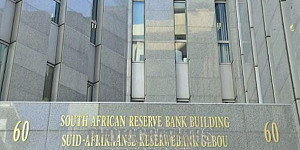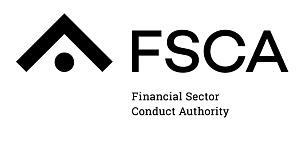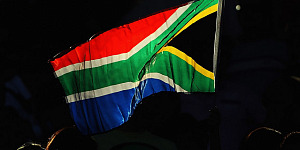
South Africa’s economy, the continent’s largest, grew at the slowest pace since a recession in 2009, as mining output plunged following the worst strikes since the end of apartheid.
Gross domestic product eased to an annualized 1.2 percent in the third quarter from the previous three months, when it grew a revised 3.4 percent, Statistics South Africa said in report released in Pretoria today. The median estimate of 17 economists polled by Bloomberg was 1.5 percent.
Strikes at gold and platinum mines this year have cut output by more than 10 billion rand ($1.1 billion) and will shave about 0.5 percentage point off the economic growth rate, according to the National Treasury. Finance Minister Pravin Gordhan is forecasting expansion of 2.5 percent this year, the slowest pace since a 2009 recession. That’s less than half the 7 percent growth the government says is needed to slash a 25.5 percent jobless rate.
“The scary bit is if you exclude mining from the economy in the third quarter, you still would’ve seen a slowdown,” Gina Schoeman, an economist at Citigroup Inc. in London, said in a telephone interview. “Even though mining is such a drag, there is no doubt that the rest of the economy is losing momentum.”
Manufacturing Output
The rand pared its gains after the data was released, dropping to 8.86 per dollar and was trading at 8.8369 as of 11:56 a.m. in Johannesburg. The yield on the R157 government bond, due 2015, declined one basis point, or 0.01 percentage point, to 5.5 percent.
Mining plunged an annualized 12.7 percent in the third quarter after expanding 31 percent in the previous three months, the statistics office said. Manufacturing, which makes up 15 percent of the economy, rose 1.2 percent compared with a 0.8 percent contraction in the second quarter.
“If you exclude mining we could have been growing 2 percent,” Kedibone Mabaso, manager of national accounts data at the statistics agency, told reporters in Pretoria today.
Last quarter’s growth rate was the slowest since a contraction of 2.7 percent in the second quarter of 2009.
The government and central bank have little room to stimulate the economy as growth slows. While the Reserve Bank surprised economists by lowering the repurchase rate by 50 basis points on July 19, Governor Gill Marcus has held the rate at 5 percent since then because of a weaker rand and quickening inflation.
Budget Deficit
“The slowdown is occurring in the economy, but it isn’t necessarily that fast,” Peter Attard Montalto, an economist at Nomura Plc in London, said in a phone interview. “This isn’t providing enough of a shock yet for the Reserve Bank to cut rates in January.”
Gordhan has pledged to keep the budget deficit under control as South Africa faces scrutiny from credit rating agencies. Moody’s Investors Service and Standard & Poor’s have cut the nation’s credit rating since Sept. 27, while maintaining a negative outlook.
Agriculture rose an annualized 7.4 percent, the retail industry expanded 1.7 percent and financial services grew 1.8 percent, the statistics agency said. The economy expanded 3.5 percent in 2011, compared with a previous estimate of 3.1 percent, it said.





































